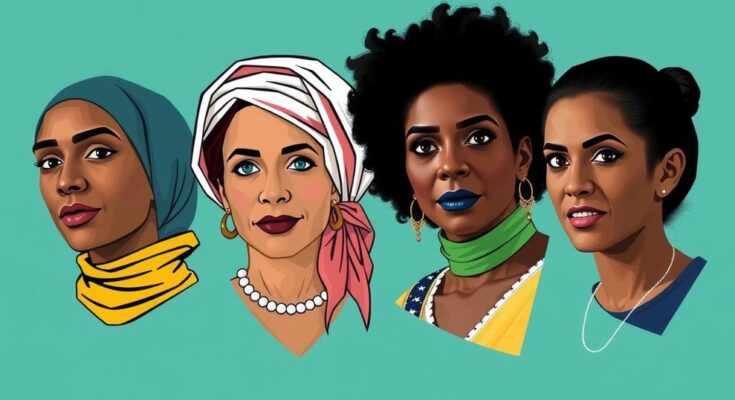A recent report by the CDJor reveals a significant increase in hostility aimed at journalists, particularly women and minorities, during Brazil’s municipal elections. Most attacks were directed at female journalists, reflecting cultural misogyny and racism within the media context. Notable cases include Juliana Dal Piva, who faced severe harassment post-investigation of former President Bolsonaro. Experts urge stronger protections for journalists to ensure press freedom remains intact.
During the recent municipal elections in Brazil, there was a notable increase in violence and aggression directed at journalists, particularly those who are women or belong to minority demographics. A report published in December by the Coalition in Defense of Journalism (CDJor) highlighted that most of the documented harassment was aimed at female journalists, even though they constitute a smaller segment of the media workforce. Analysts attribute this surge in attacks to a prevailing culture of hostility targeting both the press and minority groups.
Cristina Zahar, a representative from the Committee to Protect Journalists (CPJ), pointed out the misogynistic and patriarchal societal norms that result in such aggression against women in the media. This trend has not only affected women but also severely impacted Black journalists, who frequently face racist remarks. For instance, journalist Pedro Borges experienced racial slurs following an interview with a right-wing candidate, highlighting the pervasive discrimination in media coverage.
The report specifies that online platforms, particularly social media, have become battlegrounds for such attacks, with a high percentage occurring on Instagram and X (formerly Twitter). Juliana Dal Piva, an investigative journalist, has been a prominent target of harassment, particularly after her critical investigations into former President Jair Bolsonaro. Following her investigations, she faced threats and slander, with supporters of Bolsonaro subjecting her to a barrage of misogynistic abuse and even death threats.
Zahar and Dal Piva expressed concern that the environment fostered during Bolsonaro’s presidency has led to long-lasting damage to the press’s relationship with political authority, creating a culture of intimidation that continues to influence journalistic practice. Their testimonies indicate a pressing need for protection measures for journalists and accountability for aggressors to safeguard free expression in Brazil.
During Brazil’s municipal elections, a concerning pattern of hostility towards journalists, particularly women and minorities, has been observed. The report by CDJor sheds light on the alarming frequency and nature of attacks directed at these journalists throughout the election campaign period. The broader implications suggest a cultural environment that marginalizes minority voices within the media landscape, reinforcing the need for protective policies and interventions. This environment is exacerbated by political narratives that delegitimize the role of the press, as noted during Bolsonaro’s rule, which has indelibly marked the landscape of Brazilian journalism.
In conclusion, the escalating attacks on journalists, especially those who are women and minorities, during Brazil’s municipal elections reflect deeper societal issues related to misogyny and racism within the media landscape. The findings from the CDJor report call for urgent reform and protective measures for journalists to improve their safety and the integrity of press freedom in Brazil. Unless tangible steps are taken to combat this hostility, the future of journalism and free expression in the country remains precarious.
Original Source: www.voanews.com




